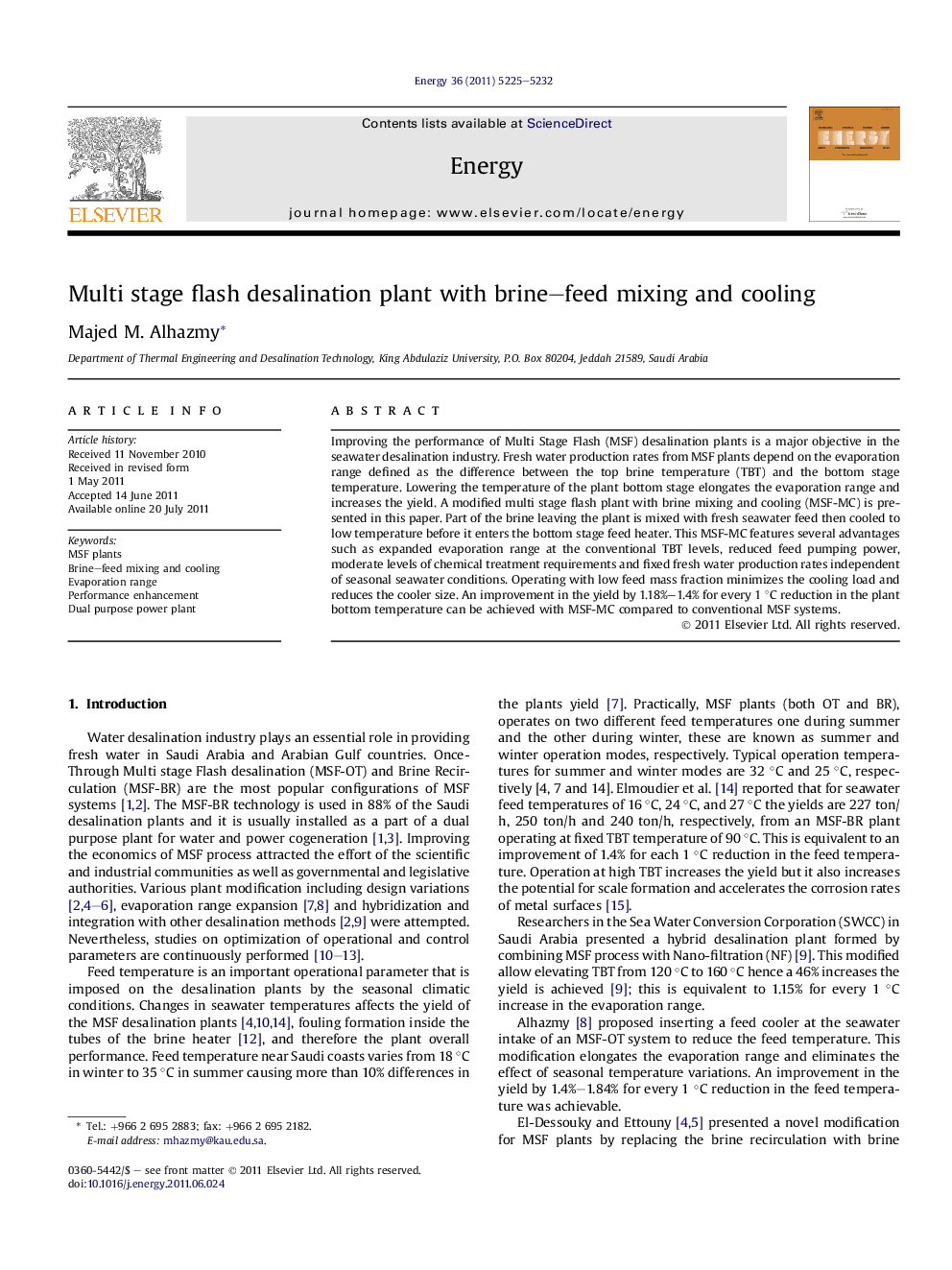| Article ID | Journal | Published Year | Pages | File Type |
|---|---|---|---|---|
| 1734285 | Energy | 2011 | 8 Pages |
Improving the performance of Multi Stage Flash (MSF) desalination plants is a major objective in the seawater desalination industry. Fresh water production rates from MSF plants depend on the evaporation range defined as the difference between the top brine temperature (TBT) and the bottom stage temperature. Lowering the temperature of the plant bottom stage elongates the evaporation range and increases the yield. A modified multi stage flash plant with brine mixing and cooling (MSF-MC) is presented in this paper. Part of the brine leaving the plant is mixed with fresh seawater feed then cooled to low temperature before it enters the bottom stage feed heater. This MSF-MC features several advantages such as expanded evaporation range at the conventional TBT levels, reduced feed pumping power, moderate levels of chemical treatment requirements and fixed fresh water production rates independent of seasonal seawater conditions. Operating with low feed mass fraction minimizes the cooling load and reduces the cooler size. An improvement in the yield by 1.18%–1.4% for every 1 °C reduction in the plant bottom temperature can be achieved with MSF-MC compared to conventional MSF systems.
► MSF-MC is a Multi Stage Flash desalination plant with brine mixing and cooling. ► In MSF-MC part of brine is mixed with feed, then cooled before entering the plant. ► MSF-MC has high yield, with low chemical treatment and pumping power than MSF-OT. ► MSF-MC operates independent of seasonal climatic conditions. ► Yield improves by 1.18%–1.4% for every 1 °C reduction in the bottom temperature.
